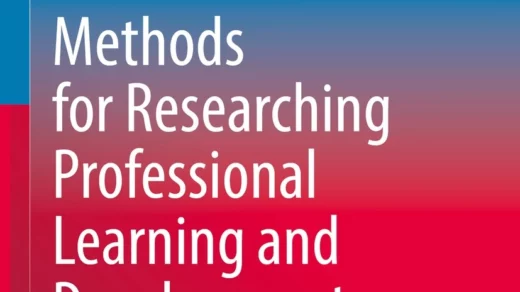An edited volume by Muhittin Sahin (University of Mannheim, Germany) and Dirk Ifenthaler (University of Mannheim, Germany and Curtin University, Australia)
Introduction
Online assessment has been advancing rapidly in the context of higher education and its growth is set to accelerate with emerging opportunities for data collection and analysis. Yet, the future of online assessment faces major challenges including, perhaps most importantly, the extent to which assessments, when enabled by technology, can serve simultaneously the needs of learners, teachers and those of the enterprise of education. Online assessments may involve, for example, a pedagogical agent acting as a virtual coach patiently tutoring someone and providing feedback in anything they would like to learn; scaffolding students to complete a task and measuring how much support they need; an analysis of a learner’s decisions during a digital game or simulation; students reviewing and commenting on each other’s digital creations through an online discussion; a multimedia-constructed response item created with an online animation and modeling application; students receiving remote asynchronous expert feedback about how they worked with each other via IT to solve a problem and communicate their understanding; an emotionally engaging virtual world experience that unobtrusively documents progression of a person’s leadership and ethical development over time; or semantic rich and personalized feedback as well as adaptive prompts for reflection through data-driven assessments.
This edited volume collects original contributions which critically reflect the current state of research in educational assessment and identifies ways in how to harness data and analytics for assessment. It will also to present practical cases to stakeholders including the following tentative topics:
• Design principles of Assessment Analytics
• Determine the most important metrics or features/attributes for Assessment Analytics
• The contributions of Assessment Analytics to field of Learning Analytics
• Dashboard design and visualization for Assessment Analytics
• Evaluation of the Assessment Analytics applications from the stakeholders’ perspectives
As a result, the edited volume will present a collection of indicators or measurements focusing on learning processes and related behavior, (meta-)cognition, emotion and motivation, as well as social processes. In addition, each section of the book will include an invited commentary from a related field, such as educational psychology, cognitive science, learning science, etc.
The following presents a tentative table of contents including sections and possible key areas of the included contributions:
Section on indicators focusing on behavior
-Modelling student behavioral engagement
-Measuring engagement with multimodal data
-Commentary from Learning Design or Learning Science
Section on indicators focusing on cognition and metacognition
-Measuring learning from text
-Learning strategies
-Metacognitive prompts and personalized scaffolding
-Commentary from Psychometrician or Cognitive Science
Section on indicators focusing on emotion and motivation
-Affect detection methods and techniques
-Emotions and ITS
-Emotion regulation in collaborative learning
-Measuring motivation from hypertext
-Commentary from Educational Psychology
Section on indicators focusing on social processes
-Modelling dynamics of social processes
-Linguistic analysis of student collaboration
-Group cohesion
-Commentary from Computational Social Science
This edited volume is part of the Advances in Analytics for Learning and Teaching book series (https://www.springer.com/series/16338) and will focus on indicators or measurements focusing on learning processes and related behavior, (meta-)cognition, emotion and motivation, as well as social processes.
Call for Proposals
If you are interested to contribute to the book project, we are asking you to submit a chapter proposal, including title, authors, affiliations, abstract describing the content of the chapter (max. 300 words), five keywords, three key references and a description of how the chapter fits the theme of the book, no later than 15 February 2023.
Please submit the chapter proposal no later than 15 February 2023 as a single PDF document including all required information using the online submission form: https://ogy.de/AAIEproposal
All submissions will undergo a rigorous double-blind peer review who will recommend full submissions from among the proposals. Accepted chapters shall not exceed 8,000 words and shall be completed no later than 31 July 2023. Specific guidelines will be made available after 01 March 2023. You may refer to the below detailed information or visit the website: https://ogy.de/AAIE-CfP
Proposed Timeline
15 February 2023: Proposals due including title, authors, affiliations, abstract, keywords, references, theme
01 March 2023: Notification and additional information for accepted authors
31 July 2023: Draft chapters of max 8,000 words due
30 September 2023: Chapters returned with reviewers’ comments
30 November 2023: Final chapters due
Inquires
Please use the following link for your inquiries and submissions: https://ogy.de/AAIEproposal


